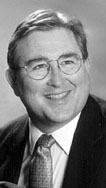The Vagabond recently received a call from State of Alabama Historic Commission archeologist Stacye Hathorn.
She was going to visit the old Sixth Street Cemetery in Gadsden and asked if I would come along. Stacye was checking on the status of the cemetery where a cleanup had been done.
Also called the Southern Hills Cemetery, Sixth Street Cemetery was a black cemetery for years, going back to before the Civil War. Many slaves and well-known blacks are buried there.
One of the graves that we stumbled upon was that of Mack Commins. The Vagabond did some research and found he was very well known.
Back in the good old days, Gadsden had a number of blacks who were good citizens, men and women who reflected credit upon the community. They came up from slavery but emulated the virtues and the good qualities of their white friends. Perhaps they also absorbed some of the bad traits of the whites, but on the whole, they stood up pretty well. Perhaps the one best remembered by most white people is Mack Commins, who came to the area in 1866 to open a barbershop.
Mack was born Aug. 16, 1853, a few years before the Civil War began, and died on Dec. 8, 1945. He was 92 years old. He married Eugenia Shirley (1860-1938) in 1880.
Mack had a shop at Sulphur Springs, Ga., near Chattanooga, Tenn., when the late Captain W. P. Lay was a guest at the resort. The Captain talked about Gadsden so much that Mack decided to come here. In fact, when the Captain came home, he found that Mack had already set up his first shop in Gadsden in the Kittrell Hotel, which at that time was located in the middle of the block south of the present Printup Hotel on 4th Street. The site later became the Noojin hardware store.
Mack became a barber at 14 years of age in Tuscaloosa. His first shop was located at the University of Alabama, where he became acquainted with hundreds of students from all over the state. Mack always had the best and largest barbershop in Gadsden but he was always trying something as a sideline.
Mack’s chief ambition was to travel with a medicine show of his own. He made several attempts at it. He once started out on the road with two boys who could sing and play the banjo and guitar. He put on his show and began to sell his medicine, usually some kind of hair tonic.
Mack went away at another time and studied osteopathy. He received his diploma, and from then on was known as “Doctor Commins.”
Back in the 1880s and 90s, Mack Commins had a shop in the room (later occupied by the Stringer Realty Company) used as a clearinghouse for town news, particularly on Sunday morning.
Patrons in those days received a check upon entering the place in order to be served, in turn with each check being numbered. The barber called out the number of the person to be served as soon as his chair was empty. All the room around the four walls was filled with chairs and from seven o’clock to eleven o’clock in the morning there was a general discussion of almost everything under the sun, politics and town scandal being the principle topics. Discussions were almost friendly and neighborly, and many tall tales and funny jokes were told.
Mack’s barbers were George Glenn, Joe Davis, W.T. McRae and Guss Jeffries all of whom were well known.
Between the mirrors on the wall in front of the chair were cupboard-like racks containing individual shaving mugs that included a brush and a cake of soap. That meant that the owner of a mug was lathered by his own brush and soap.
The name of the owner was stamped in gold letters on each mug. Some of this scrollwork in gold was rather elaborate.
In that old shop, one could always find copies of Puck and Judge, two illustrated political journals, and the inevitable Police Gazette. It was in this old shop – a veritable community center – that Mack Commins made so many friends among the white people. Many acquaintances formed on those Sunday morning blossomed into lifelong friendships.
It was about the best in the city place for news tips. Mack Commins had as many friends as anybody in town, particularly among the whites.
There was an advertising card of Mack Commins.
On one side of the card he had this story:
“Sheriff Alex Burns told Mr. John Cunningham, the chief of police, that it was a positive fact that he overheard Walter Stroud, the butcher, say that Col. Louis L. Herzberg, the dry goods man, told Capt. J.C. Pug that he stated that Lieut. N.G. Canning, the lawyer, had told Mr. Walter E. Moragne as a secret to tell Mr. Forney Hughes, who made the remark to Judge J.H. Disque, the man who runs the city court, that Dr. John B. Liddell stated to Mr. Wallace Bellenger, who positively stated to his brother who keeps the livery stable, that Mr. Fred Frank, who advertises in the Gadsden Times and the Gadsden Tribune, as saying to Mr. Bob Miller that Dr. Charlie Gunn was going to tell Major W.J. Sibert that you can get the smoothest shave and most fashionable haircut at Mack Commins.”
On the reverse side of the card was “A Cure for Life,” which read: “Take three grains of common sense, two ounces of experience, a large sprig of time and three quarts of cooling water of consideration. Set it over a gentle fire of love and skim with a spoon of melancholy; put in the bottom of your heart, corked with the cork of clear conscience. Let it remain, and you will get quickly find ease and be restored to your senses again. These things can be found at the apothecary on prudent street, next door to reason in the village of contentment.”





